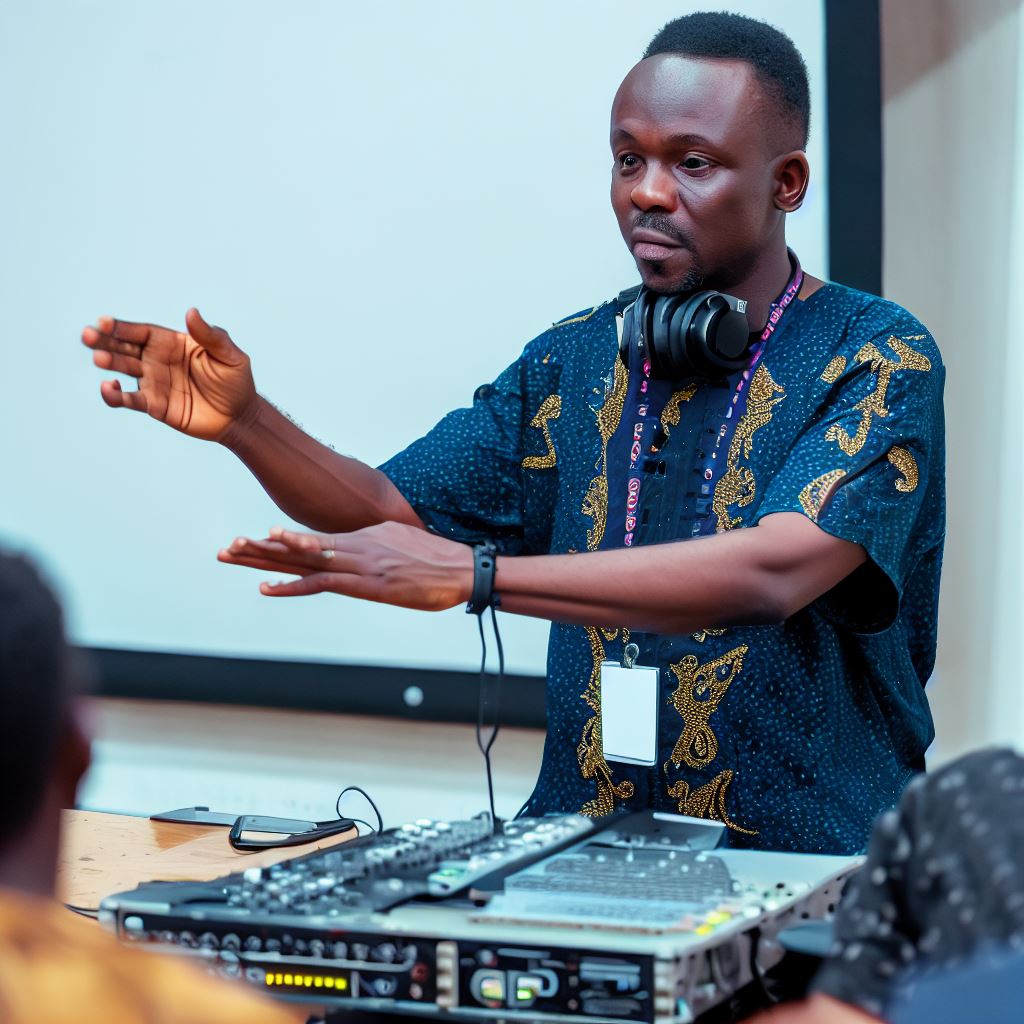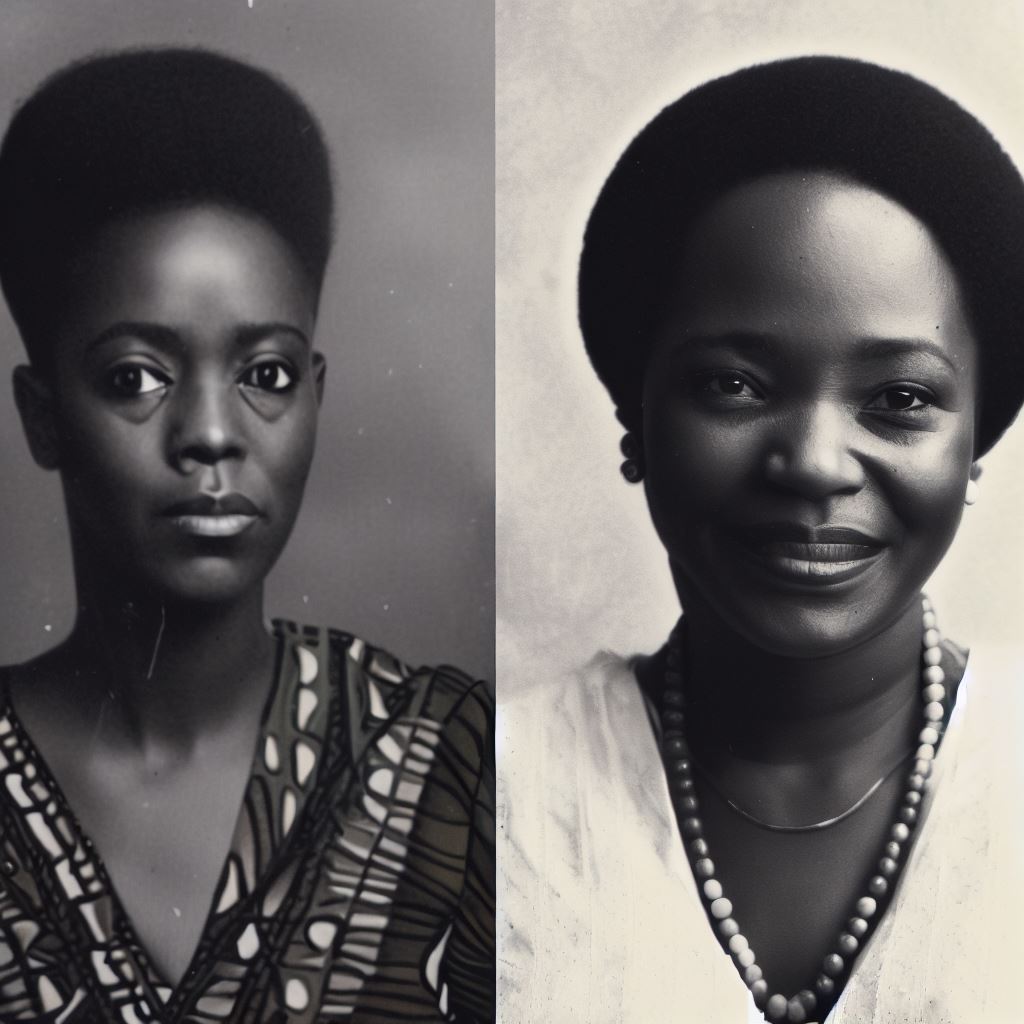Introduction
Let’s explore Nigerian film composers: Challenges and triumphs.
Nigerian film composers face both challenges and triumphs in their industry, an industry that is critical to the success of Nigerian films.
In the vibrant tapestry of Nigeria’s diverse and dynamic creative landscape, film composers stand as unsung maestros, weaving intricate melodies that breathe life into cinematic narratives.
These musical architects play a pivotal role in shaping the emotional resonance and immersive experience of a film, yet their journeys are often shrouded in challenges that mirror the broader complexities of Nigeria’s burgeoning film industry.
In this exploration, we embark on a journey through the lives and careers of Nigerian film composers, delving into the crucible of trials they face, and celebrating the resounding triumphs that emerge from their unyielding dedication to their craft.
Through this odyssey, we endeavor to uncover the untold stories, the artistic innovations, and the enduring spirit that define the realm of Nigerian film composition.
Join us as we traverse the harmonious alleys of their creativity, shedding light on the challenges they overcome and the triumphs that resonate far beyond the screen.
Overview of Nigerian Film Industry
Nigerian film industry, known as Nollywood, has emerged as one of the vibrant and influential film industries globally.
With its unique characteristics and rapid growth, Nollywood has captured the attention of both local and international audiences.
A. Overview of the Nigerian film industry (Nollywood)
Nollywood came into existence in the 1990s and has since become the second-largest film industry in the world, in terms of the number of annual film productions.
It has surpassed the United States’ Hollywood and India’s Bollywood in terms of film output.
Despite the industry facing several challenges, such as limited budgets, piracy, and inadequate distribution channels, Nollywood has continued to prosper and make significant contributions to the global cinema landscape.
B. Growth and Significance of Nollywood
The growth of Nollywood can be attributed to several factors.
Firstly, the industry emerged as a response to the dominance of Western and Indian films in the Nigerian market.
It aimed to tell authentic Nigerian stories, reflecting the cultural, social, and economic realities of the country.
Secondly, Nollywood adopted a low-budget production approach, using affordable digital cameras and embracing quick production techniques.
This allowed filmmakers to produce films at a fraction of the cost compared to traditional filmmaking methods.
The significance of Nollywood extends beyond its economic contributions.
It has provided employment opportunities to thousands of individuals, including actors, directors, producers, and technicians.
Additionally, Nollywood has become a powerful tool for cultural expression and preservation, showcasing Nigerian traditions, languages, and values to the world.
Nollywood films often address social issues, such as corruption, poverty, and gender inequality, sparking discussions and raising awareness both domestically and internationally.
This has played a crucial role in shaping public opinion and advocating for positive change in Nigerian society.
Moreover, Nollywood has influenced the development of film industries in other African countries, leading to the emergence of similar industries, such as Ghallywood in Ghana and Riverwood in Kenya.
The success of Nollywood has inspired filmmakers across the continent to tell their own stories and promote African cinema globally.
In short, the Nigerian film industry, Nollywood, has experienced remarkable growth and has become a significant player on the global cinema landscape.
Its unique approach to storytelling and low-budget production techniques have contributed to its success.
Despite the challenges it faces, Nollywood continues to thrive and make a substantial impact, both economically and culturally.
Read: The Evolution of Sound Effects Editing in Nigeria
Role of Film Composers
A. Crucial role film composers play in the storytelling process
Film composers play a crucial role in the storytelling process of Nigerian films.
They are responsible for creating original music that enhances the overall cinematic experience and helps convey the emotions and themes of the story.
B. Responsibilities, including creating original music, score selection, and sound design
1. Creating Original Music
Film composers are tasked with composing original music that aligns with the tone and mood of the film.
They have to collaborate closely with the director and other production members to understand the vision of the film and create music that complements it.
The music they create is often tailored to specific scenes, characters, or moments within the film to enhance their impact.
2. Score Selection
In addition to composing original music, film composers also have the responsibility of selecting pre-existing music or scores for certain scenes or sequences.
This involves analyzing the narrative and emotional requirements of the scene and finding music that fits seamlessly.
They have to ensure that the selected music enhances the narrative and adds depth to the storytelling process.
3. Sound Design
Another crucial responsibility of film composers is to contribute to the sound design of the film.
This involves working with sound designers and engineers to create a cohesive and immersive auditory experience.
They help in choosing and manipulating sound effects that enhance the mood, atmosphere, and emotions portrayed in the film.
4. Collaborating with Filmmakers
Film composers work closely with directors, producers, and other members of the production team to understand the creative vision of the film.
They attend screenings, read scripts, and discuss ideas with the filmmakers to ensure their music aligns with the overall storytelling process.
This collaborative process allows them to bring their creative expertise to the film while respecting the director’s artistic vision.
5. Creating Emotional Impact
One of the primary responsibilities of film composers is to evoke emotional responses from the audience.
They use music to heighten tension, create suspense, build anticipation, or elicit specific emotional reactions.
By understanding the nuances of the story, they can manipulate the audience’s emotions, making the film more engaging and impactful.
6. Enhancing the Narrative
Film composers contribute to the narrative by using music as a storytelling tool.
They can establish leitmotifs for characters or important story elements, making them recognizable and adding layers to the narrative.
Their music can also provide transitions between scenes, highlight key moments, or bridge gaps in the storytelling process.
7. Amplifying Cultural Identity
Nigerian film composers play a crucial role in amplifying the cultural identity of Nigerian films through their music.
They incorporate traditional Nigerian instruments, rhythms, and melodies into their compositions, showcasing the rich cultural heritage of the country.
The music they create adds an authentic and unique flavor to the films, making them distinctively Nigerian.
In fact, film composers in Nigeria have a vital role in the storytelling process.
They create original music, select scores, contribute to sound design, collaborate with filmmakers, evoke emotions, enhance the narrative, and amplify the cultural identity of Nigerian films.
Their creative contributions greatly impact the overall cinematic experience for viewers.
Read: Music Schools in Nigeria: Training Film Composers
Challenges Faced by Nigerian Film Composers
Being a film composer in Nigeria comes with its own set of challenges.
These talented individuals face numerous obstacles on their journey to creating captivating soundtracks for Nigerian cinema.
Let’s explore some of the challenges they encounter:
A. Limited resources and budget constraints
One of the major challenges faced by Nigerian film composers is the lack of financial resources and budget constraints.
Creating a high-quality soundtrack requires access to expensive equipment and technology, which can be difficult to obtain due to limited funding.
B. Lack of proper training and education opportunities
Another challenge is the absence of proper training and education opportunities for aspiring film composers.
Many composers lack formal education in music composition and have to rely on their natural talent and experience, which may limit their potential for growth and development.
C. Difficulty in accessing quality equipment and technology
Nigerian film composers often struggle to access high-quality equipment and technology needed to produce professional soundtracks.
Limited availability of advanced recording studios, software, and instruments hampers the production of innovative and polished compositions.
D. Cultural and traditional restrictions on music composition
Cultural and traditional restrictions can pose challenges for Nigerian film composers.
Nigerian cinema often adheres to cultural norms and expectations, which may limit the creative freedom of composers.
They must strike a fine balance between honoring tradition and pushing boundaries.
In essence, Nigerian film composers face several challenges in their quest to create remarkable soundtracks for Nigerian cinema.
Limited resources, lack of training opportunities, difficulty in accessing quality equipment, and cultural restrictions all contribute to the obstacles they encounter.
Despite these challenges, these talented individuals continue to triumph and showcase their exceptional musical abilities.
Read: African Rhythms: How Nigerian Film Composers Use Them

Triumphs and Success Stories
A. Success stories of Nigerian film composers who have overcome challenges
1. Lancelot Oduwa Imasuen
Lancelot Oduwa Imasuen is a renowned Nigerian film composer who has triumphed over numerous challenges throughout his career.
Imasuen’s notable achievement includes composing the soundtrack for the critically acclaimed Nigerian film “Another Campus Tale.”
His exceptional work on the film earned him recognition at the African Movie Academy Awards.
2. Michael Ogunlade
Another success story is that of Michael Ogunlade, a Nigerian film composer who started his journey with limited resources.
Ogunlade’s determination led him to compose the music for the blockbuster film “The Meeting,” which received widespread acclaim.
As a result of his remarkable work, Ogunlade received the Best Music Score award at the Africa Magic Viewers’ Choice Awards.
B. Their notable achievements and recognition in the industry
The accomplishments of these composers highlight their resilience and creativity in overcoming challenges.
Their contribution to the industry has not only inspired others but has also propelled Nigerian films to international acclaim.
Through their captivating music, these composers have added depth and emotional resonance to the storytelling in Nigerian films.
Their melodies and compositions evoke a sense of cultural identity and connect audiences to the heart of the narratives.
The success of Nigerian films, partly due to the work of these composers, has led to increased global recognition of the industry.
International film festivals are now showcasing Nigerian films, exposing them to wider audiences around the world.
Nigerian composers’ dedication and innovation have paved the way for the industry’s growth and success.
Their ability to create captivating soundtracks has elevated Nigerian films to a new level of quality and professionalism.
C. How their work has contributed to the popularity and success of Nigerian films
Moreover, the success of these composers has opened doors for aspiring film composers in Nigeria, providing them with hope and motivation.
Many talented individuals now see the profession as a viable career path, further enriching the industry’s pool of talent.
Publish Your Professional Profile, Business or Brand
Showcase your expertise, gain trust, and boost visibility instantly on Professions.ng.
Publish NowThe resilience and achievements of Nigerian film composers serve as a testament to the flourishing film industry in the country.
These composers have not only overcome challenges but have also become influential figures, inspiring the next generation of composers.
Their contributions have amplified the cultural impact of Nigerian films and showcased the country’s vibrant artistic scene.
As the industry continues to grow, Nigerian film composers will undoubtedly play a crucial role in shaping its future success.
These success stories exemplify the talent and determination of Nigerian film composers, shedding light on the triumphs they have achieved despite facing numerous challenges.
Through their exceptional work, they have garnered recognition, elevated the quality of Nigerian films, and contributed to the industry’s global popularity.
Their achievements serve as an inspiration for aspiring composers and contribute to the flourishing Nigerian film industry.
Read: Traditional Music’s Influence on Nigerian Film Scores
Efforts to Overcome Challenges
A. Initiatives and organizations that support Nigerian film composers
In order to support Nigerian film composers and help them overcome the challenges they face, several initiatives and organizations have emerged in recent years.
These efforts aim to improve access to resources, training, and equipment, as well as foster collaborations with international composers and production houses.
1. The Society of Nigerian Film Composers (SONIFCO)
The Society of Nigerian Film Composers (SONIFCO), established in 2006, is a platform that specifically focuses on promoting Nigerian film composers.
They organize networking events, workshops, and conferences to facilitate knowledge sharing and skill development.
The Society of Nigerian Film Composers (SONIFCO) also provides mentorship programs, connecting experienced composers with emerging talents.
2. The Africa Film Academy (AFA)
The Africa Film Academy (AFA), a non-profit founded in 2004, aims to address the lack of resources for Nigerian film composers.
They raise funds through partnerships with corporate sponsors, philanthropists, and government grants.
The Africa Film Academy (AFA) offers grants for composers to access high-quality equipment and software, ensuring professional standards in their work.
B. Training and Skills Development
A number of training programs have been developed to enhance the skills of Nigerian film composers.
Music schools and academies now offer specialized courses in film scoring to cater to the growing demand.
Additionally, renowned composers from around the world are invited to conduct masterclasses and share their expertise.
C. International Collaborations
Nigerian film composers are increasingly collaborating with international composers and production houses.
These collaborations provide opportunities for knowledge exchange, exposure to different styles, and access to global markets.
Furthermore, international partnerships contribute to the professional growth and recognition of Nigerian composers.
D. Government Support
The Nigerian government has recognized the importance of supporting the film industry and its composers.
They have introduced various policies and incentives to encourage local production and empower composers financially.
Tax breaks, grants, and film funding schemes have been implemented to boost the industry’s growth and sustainability.
E. Industry Collaboration
Nigerian film composers have started collaborating more closely with other industry professionals.
Working closely with directors, producers, and sound engineers allows for better integration of music into films.
These collaborations result in more cohesive and impactful storytelling through the effective use of music.
In general, the challenges faced by Nigerian film composers are being addressed through various initiatives and organizations.
Efforts to improve access to resources, training, and equipment are evident.
Furthermore, collaborations with international composers and production houses have opened up new avenues for growth and recognition.
With continued support from the government, industry, and the global film community, Nigerian film composers are poised to achieve even greater triumphs in the future.
Conclusion
Nigerian film composers face numerous challenges in their industry. The lack of recognition and financial support makes it difficult for them to thrive.
However, despite these obstacles, they have achieved remarkable triumphs and successes. They have brought Nigerian cinema to the global stage and have been recognized for their talent.
Moving forward, there is great potential for further growth and recognition in the future.
As the Nigerian film industry continues to expand, more opportunities will arise for composers to showcase their skills.
With increased support and investment, Nigerian film composers can reach even greater heights and contribute to the development of the industry.
The success achieved so far serves as a testament to their resilience and determination.
It is important to acknowledge and celebrate their achievements while also working to address the challenges they face.
By recognizing the importance of film music and providing adequate support, Nigeria can continue to nurture its talented composers and create a thriving film industry that is recognized globally.




